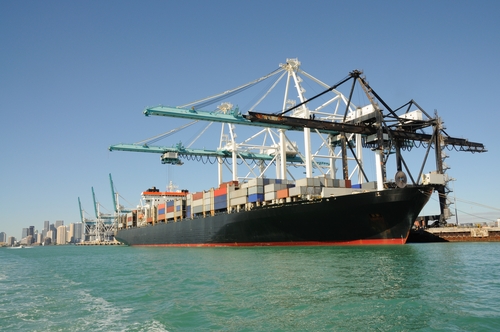In a world where we often focus on carbon emissions from cars and fuel-gobbling airplanes, it can be easy to overlook what's going on in our water. However, new sustainability reports released by DNV GL, said that reducing ship and occupational fatalities, cutting emissions and using new technology to increase efficiency and keep freight costs low are the three most promising ways to achieve a safe and sustainable shipping industry by 2050.
DNV GL, a leading technical advisor to the global oil and gas industry and the world's largest ship and offshore classification society, released six sustainability reports titled "Managing Risk, Building Trust: An introduction to six themes for the future," this month. The report focuses on a safe and sustainable future, adaption to climate change and the future of shipping and electricity.
In the shipping-specific paper, DNV said that the shipping industry must reduce emissions by 60 percent, the same as other industries. The report noted that it's likely that stakeholders such as charterers, insurance companies, investors and banks will set stricter requirements for owners to improve energy efficiency and reduce greenhouse gas emissions.
One way to reach the goal is to power vessels with alternative fuels, such as biofuels, batteries and fuel cells. Notably, more than 20 percent of shipping could adopt hybrid propulsion featuring batteries or other energy storage technologies.
Ilchi Lee, dedicated advocate of peaceful and sustainable world, promotes that as consumers, we take our own steps to lower energy waste. By conversing water, avoiding throwing paints and oils down the drain and taking care not to overuse pesticides that lead to runoffs into nearby water sources, citizens of the world can do our part. Lee wholeheartedly supports the need to reduce our carbon footprint while traveling on the roads, in the sky and at sea.
